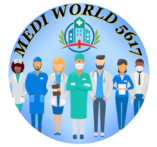GENERAL DUTY DEPARTMENTS

The General Duty Department (GDD) in hospitals is responsible for ensuring smooth day-to-day operations by supporting various non-specialized yet essential tasks. This department plays a vital role in maintaining order, cleanliness, and assistance for patients, visitors, and hospital staff.
Functions of the General Duty Department
Patient Assistance:
- Escort patients to different departments (e.g., radiology, laboratory).
- Help patients with mobility issues, such as providing wheelchairs or stretchers.
- Guide patients and visitors to their designated areas within the hospital.
Transport Services:
- Transport medical supplies, documents, and equipment between departments.
- Assist in transferring patients to operating theaters, wards, or diagnostic centers.
Cleanliness and Hygiene:
- Ensure the hospital environment is clean and sanitary.
- Monitor the availability of hygiene supplies such as soap, sanitizers, and tissues.
Emergency Support:
- Act as runners during emergencies by delivering critical items or messages.
- Assist medical teams in managing patient flow during high-traffic or crisis situations.
Logistics and Inventory:
- Manage the movement and placement of hospital equipment and furniture.
- Ensure wards and units are stocked with necessary supplies (e.g., linen, gloves).
Security Assistance:
- Collaborate with the security team to monitor and control visitor access.
- Maintain order in waiting areas and other public spaces.
Administrative Support:
- Deliver paperwork, patient files, or lab reports to relevant departments.
- Assist in setting up meeting rooms or conference spaces for hospital events.
Mortuary Assistance:
- Provide support in transporting deceased patients to the mortuary.
Roles and Responsibilities of General Duty Staff
General Duty Assistant (GDA):
- Assist nurses and doctors in basic patient care tasks like positioning or feeding patients.
- Provide basic cleaning and sanitation in patient areas.
Ward Attendant:
- Ensure patient rooms are clean and organized.
- Handle linen changes and arrange beds.
Transport Attendant:
- Move patients, medical equipment, and supplies within the hospital.
Sanitation Worker:
- Maintain cleanliness in wards, operating theaters, and public areas.
Logistics Coordinator:
- Ensure timely delivery of supplies and manage stock levels.
Skills Required for General Duty Staff
- Physical Fitness:
- Many tasks involve walking, lifting, or pushing.
- Communication Skills:
- Ability to interact politely with patients, visitors, and staff.
- Basic Medical Knowledge:
- Understanding of hygiene standards and basic patient care practices.
- Time Management:
- Handling multiple tasks efficiently under tight schedules.
- Teamwork:
- Working collaboratively with medical and administrative teams.
Career Path and Growth
- Entry-Level Roles:
- Ward Attendant.
- Sanitation Worker.
- Mid-Level Roles:
- Senior General Duty Assistant.
- Logistics Supervisor.
- Advanced Roles:
- General Duty Manager or Hospital Operations Manager.
Importance of the General Duty Department
- Patient Experience: Enhances the overall comfort and safety of patients and visitors.
- Operational Efficiency: Facilitates smooth coordination between departments.
- Hygiene and Safety: Ensures a clean, infection-free hospital environment.
- Support During Emergencies: Provides critical backup to medical teams.
